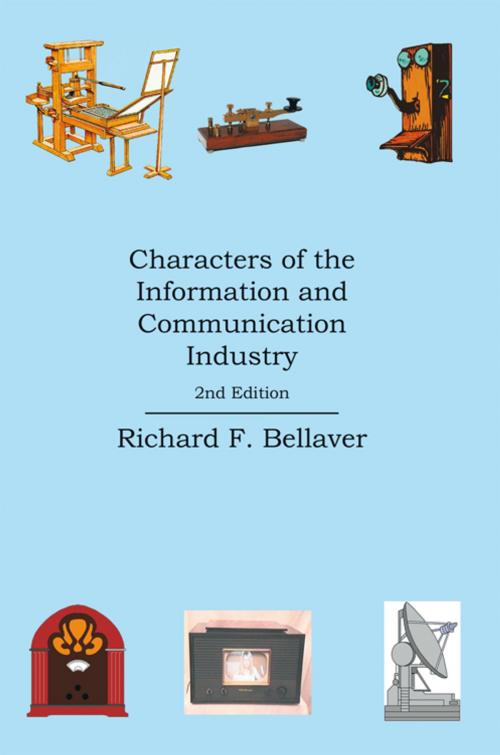Characters of the Information and Communication Industry
2Nd Edition
Nonfiction, Reference & Language, Education & Teaching, Biography & Memoir, History| Author: | Richard F. Bellaver | ISBN: | 9781456732592 |
| Publisher: | AuthorHouse | Publication: | May 6, 2011 |
| Imprint: | AuthorHouse | Language: | English |
| Author: | Richard F. Bellaver |
| ISBN: | 9781456732592 |
| Publisher: | AuthorHouse |
| Publication: | May 6, 2011 |
| Imprint: | AuthorHouse |
| Language: | English |
I have taught a graduate course on the history of the information and communications industry for 20 years. The course shows students how the world has moved from primitive communication to the integrated multi-media situation we are in today. Concentration is on the fields of journalism, telecommunications, broadcasting, and computing. Emphasis is placed on the leaders of the areas and the political and cultural surroundings that encouraged or discouraged growth of the industry. It is true that technology is a driving force of this industry, but it has been the individual people (characters) impelled by discovery, acceptance and marketability of that technology who have taken the next step to improve communication. The Journalism field started with Gutenberg and early added Ben Franklin, later it got a little yellow with Hearst and Pulitzer. I think Henry Luce started the business of media integration, but Rupert Murdoch certainly keeps it going. The first practical use of electricity was found by Samuel Morse and his telegraph. Bell invented the telephone, or was it Meucci? Theodore Vail invented the Bell System. Broadcasting started with Marconis invention, or was it Teslas? David Sarnoff and William Paley made the medium practical and characters like Edwin R. Morrow, Walter Cronkite and even Oprah Winfrey gave it credibility. Certainly Charles Babbage and Ada Lovelace had something to do with the start of computers, but later scientists Vannevar bush and Jon von Neumann added the electronics. Then UNIVAC convinced Thomas Watson Junior that IBM better start making them. Jobs and Wozniac started the personal computer business, but Bill Gates created the software to make them run. Tim Berners-Lee hooked those computers to a network and then Amazon, eBay, and Google found a way to make money using the result. This book is the story of these people and companies.
I have taught a graduate course on the history of the information and communications industry for 20 years. The course shows students how the world has moved from primitive communication to the integrated multi-media situation we are in today. Concentration is on the fields of journalism, telecommunications, broadcasting, and computing. Emphasis is placed on the leaders of the areas and the political and cultural surroundings that encouraged or discouraged growth of the industry. It is true that technology is a driving force of this industry, but it has been the individual people (characters) impelled by discovery, acceptance and marketability of that technology who have taken the next step to improve communication. The Journalism field started with Gutenberg and early added Ben Franklin, later it got a little yellow with Hearst and Pulitzer. I think Henry Luce started the business of media integration, but Rupert Murdoch certainly keeps it going. The first practical use of electricity was found by Samuel Morse and his telegraph. Bell invented the telephone, or was it Meucci? Theodore Vail invented the Bell System. Broadcasting started with Marconis invention, or was it Teslas? David Sarnoff and William Paley made the medium practical and characters like Edwin R. Morrow, Walter Cronkite and even Oprah Winfrey gave it credibility. Certainly Charles Babbage and Ada Lovelace had something to do with the start of computers, but later scientists Vannevar bush and Jon von Neumann added the electronics. Then UNIVAC convinced Thomas Watson Junior that IBM better start making them. Jobs and Wozniac started the personal computer business, but Bill Gates created the software to make them run. Tim Berners-Lee hooked those computers to a network and then Amazon, eBay, and Google found a way to make money using the result. This book is the story of these people and companies.















